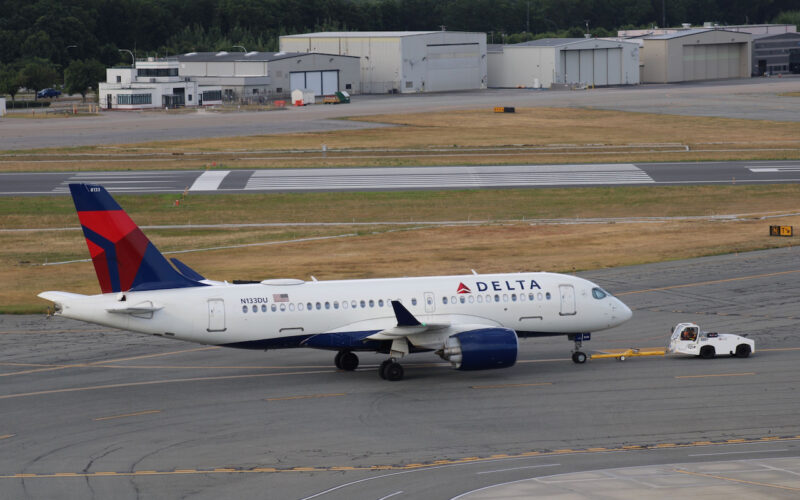A Delta Air Lines flight bound for Hartsfield-Jackson Atlanta International Airport (ATL) from Houston’s George Bush Intercontinental Airport (IAH) on May 3, 2023 was delayed for hours due to a swarm of bees that latched on the aircraft’s wing.
“Bee-lieve it or not, Delta flight 1682 on May 3 from Houston-Bush to Atlanta took a delay after a friendly group of bees evidently wanted to talk shop with the winglet of one of our airplanes, no doubt to share the latest about flying conditions at the airport,” Delta said in a statement given to various US media outlets.
One bemused passenger, with a Twitter username of @AngjaliEnjeti, uploaded a photo of the bees and the plane, an Airbus A320, and provided updates on the airline’s various attempts to get the bees to safely buzz off.
One photo uploaded was that of a seemingly bee-wildered airport staff looking up at the bee situation.
Delta told CNN that the bees were eventually displaced by pushing the aircraft back from the gate using ground equipment while no passengers were on board.
Not unusual
The power of winged insects to delay flight operations is not exactly unheard of.
In 2020, a study by the Australian Transport Safety Bureau (ATSB) traced back incidents and abandoned takeoffs to “mud-dauber wasp activity”, especially at Brisbane Airport (BNE).
In November 2020, a parked Vistara Airbus A320neo jet at the Netaji Subhas Chandra Bose International Airport (CCU) in Kolkata, India was attacked by a swarm of bees.
In 2022, pitot tubes of aircraft parked in London’s Heathrow Airport (LHR) were found to have been blocked by nesting wasps and bees.
Low noise and traffic levels at airports during the pandemic were one of the reasons why insects took shelter at airports and aircraft.
According to a pest control company, bees are attracted to the warmth of engines, so idle cars and other transportation vehicles are common shelters of insects.

